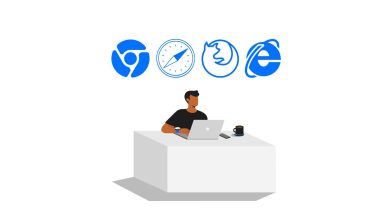
The time is right for every modern test organization to have a Remote Test Lab as the nucleus of their global expansion and testing process change. Remote test labs are internet-accessed environments for testing, allowing testers to conduct testing from anywhere at any time. They offer a scalable, reliable environment, reducing physical device maintenance and costs, and are typically cloud-based.
Cloud testing has made multiple moments for testing, with the effective facility. With the availability of cloud testing, it is easy to test anything, anytime, anywhere.
Key Features of Remote Test Labs
Remote testing labs incorporate features that provide exciting opportunities for organizations to develop and improve product quality. The following are some of the most critical features of remote testing labs,
Global Accessibility
Remote testing labs enable penetration testers across the globe to access the gadgets and browsers necessary, which ensures that your product is tested across different platforms and environments.
This becomes an important feature, especially for organizations whose user bases are in parts of the world and it enables the testing of products in different real-world scenarios and ensures they meet various users’ needs globally.
Remote labs could be built on cloud infrastructure eliminate the physical presence of the hardware and allow teams to collaborate and test products from any location.
Parallel Testing
Cloud testing in the remote test lab allows parallel testing at scale, reducing the time it takes to test and increasing efficiency. This becomes an important feature for organizations having a vast application to test or one with different components. Parallel testing helps teams execute tests simultaneously against a clean matrix of desktop, server, and browser combinations.
Cost-Effective
Cloud testing omits the physical infrastructure, which removes the costs of hardware installations and software upgrades. This is most useful for businesses running on thin budgets and for which testing can be done even with the least available resources. On an as-needed basis, organizations can scale up and down their testing capacities but be assured of the most efficient optimization of resources.
Improved Collaboration
Remote test labs alleviate the issues that organizations with distributed teams have by involving them fully and in real-time in the process of giving and receiving results and feedback. This applies mostly to businesses with staff members working in remote environments.
The tools for collaboration include shared dashboards, in-line commenting, and centralized reporting, which ensures that teams are always up to date and receive insights for greater decision-making on what action to take.
Better Test Reliability
The auto-healing features on leading cloud testing platforms ensure the best reliable tests ever. One such platform is LambdaTest, a feature provided by the platform that is beneficial for organizations that heavily rely on automation testing to be sure that their tests are a reliable and efficient way of doing things.
The auto-healing function works automatically by running a diagnosis on the test and fixing common problems without human intervention.
Real-Time Feedback
Remote test labs give real-time feedback that enables a team to find bugs that will be resolved in real time, thus reducing the time it would take to test products efficiently. This is specially designed to enable test organizations to perform product tests in much shorter periods, accomplishing more test activities than performed in the past.
Real-time feedback enables faster iterations and quicker closures of bugs, ultimately resulting in the delivery of a higher-grade quality product.
Scalability
Cloud testing platforms can vary the scale of size up or down, depending on the need, to ensure that at all times, testing processes are maintained at the optimal levels. This holds an immense advantage for organizations experiencing sudden traffic or use surges, it allows them to scale up their testing processes to these augmented demands.
Scalable infrastructure offers the ability to maintain the amount of testing capacity according to the needs of the organization.
Security
High-level security provided in its testing processes is of the cloud testing platform like LambdaTest. This serves the best advantage for organizations with sensitive data, enabling them to ensure that their testing processes are secure and reliable. With strong security provided including data encryption, access controls, and regular audits, sensitive information is safeguarded from mishandling.
Multi-Browser and Multi-Device
Remote test labs should support a wide range of browsers and devices to ensure that products are thoroughly tested under different platforms and environments. This becomes particularly useful when your organization needs to test products against many browsers and devices, as it would help you ensure that your products are compatible with your desired platforms.
Having complete device coverage helps pinpoint and solve compatibility challenges early in the development process, therefore reducing the risk of post-release problems.
Integration with CI/CD pipelines
Remote test lab integration with CI/CD pipelines could automate the testing process, enabling the organization to ensure the product is tested at the best level before every release. This function is very beneficial for companies focusing on automation as it helps to streamline the testing processes
Seamless CI/CD tool integration can form an end-to-end testing workflow to ensure that commits are thoroughly tested and validated before deployment in production.
Support for Various Testing Frameworks
It supports a wide range of testing frameworks, which includes Selenium, Cypress, Puppeteer, Playwright, and Appium, and this ensures that organizations can use frameworks selected based on their comfort and wishes.
This is particularly useful for organizations having significant investments in certain testing frameworks; it will help them leverage their prior investments. By supporting a wide range of frameworks, remote test labs serve a diverse set of organizational needs, thus allowing them to select the tools that best suit their testing requirements.
Advanced Insights and Analytics
Remote test labs have detailed reporting and analytics capabilities that help organizations track their testing processes and find areas for improvement. This capability is useful for organizations to track their testing processes and ensure areas are optimized.
Detailed reporting and analytics empower teams to gain insights from test results, spot trends, and make data-driven decisions to improve efficiency and the quality of products being tested.
Automated Test Generation
It offers the benefit of automated test generation and can automatically create test cases following user scenarios or application specifications. This feature is useful for organizations where applications are complex and buggy or need frequent updates, reducing the manual effort to an extent. Automated test case generation reduces the risk of missing out on critical scenarios or missing comprehensive test coverage.
Visual Testing
The most advanced remote test labs in the market might even include visual testing features. This will allow teams to compare the screenshots or visual elements across different browsers, devices, or versions. This feature is most useful for organizations requiring consistency in user experience throughout various platforms.
Visual testing allows organizations to catch and fix visual regressions early in the development process, making sure the final product looks and behaves as expected.
Debugging Tools
Remote test labs more often than not come with embedded debugging tools that allow teams to identify and resolve issues quickly during testing. Among these will be features like network traffic inspection, console logs, and element inspection.
Debugging tools, being a part of the full suite of tools integrated into the remote test environment, allow teams to effortlessly locate and fix issues, cutting down the overall time spent on testing and increasing the quality of the delivered product.
Benefits of Remote Test Labs: Let’s Have a Deeper Dive!
There are numerous benefits, as offered by remote test labs, that make them a feasible selection for most organizations aspiring for improved testing practices and product quality. To name a few,
Better Test Reliability
Remote test labs help test the products on every platform and environment, making your products bug-free. This feature is beneficial for organizations focusing on quality, allowing them to enforce the specified standards of the products delivered.
Enhanced Collaboration
With remote test labs, the easy sharing of test results and feedback builds the way for seamless collaboration among team members, irrespective of geographical location. This ultimately means that a geographically dispersed team can work in unison and always be on the same page.
Cost-effectiveness
Cloud testing removes the need for a large physical in-house infrastructure and recurring costs associated with hardware and software upgrades. This makes the testing process light on the customers’ pockets.
Global Reach
Remote test labs allow organizations to test their products globally, ensuring that they meet the needs of clients all over the world. This feature is very pertinent for organizations having users worldwide; that way, they get to design their products according to the needs of different regions and demographics.
Time-to-Market
The concept of testing over clouds helps speed up the cycle of releases, and thus remote test labs would ensure that products reach the market early. This is very important for companies that need to be competitive, just because they will release the
products faster and in the right way.
Enhanced Customer Satisfaction
Remote test labs ensure that customers enjoy a seamless and high-quality experience because products are deeply tested through various platforms and environments. This is one of the most appreciated features that applies to organizations valuing customer satisfaction the most, whereby it enables them to guarantee that the products meet the highest standards.
Competitive Advantage
Organizations that use remote test labs can stay a step ahead of their competitors because they can deliver high-quality products quickly and more efficiently than their competitors. This is mostly applicable in organizations that need to move at a faster pace than competitors because it enables them to deliver products fast and efficiently.
More Efficiency
Remote test labs help the testing of products quicker and much more efficiently, whereby the overall time consumed during the testing is brought down, hence enhancing productivity. This is especially good for organizations with the need for quicker testing of products since the speed at which they can release products is faster.
Resource Allocation
Remote test labs allow organizations to be more resourceful since they can focus more on testing and developing products than on infrastructure development. This is mostly applicable in organizations with few resources at their disposal since it enables them to be more optimized in their resources.
High-scale security
Cloud-based testing platforms like LambdaTest give utmost importance to security. This ensures that your testing process is secure and goes hand in hand with the set industry standards. This becomes very useful or applicable in organizations that handle sensitive data, considering that it means they can be sure that their testing processes are secure and reliable.
Conclusion
In conclusion, remote test labs have gradually turned out to be a strategic need in this era for organizations willing to broaden their global reach and, at the same time, smoothen their testing process. By using cloud testing platform LambdaTest, organizations can have reliability in testing, allow improved collaboration among team members, and have reduced costs.
The remote test labs provide the possibility to test any kind of product across all the different devices and browsers, ensuring that products meet the highest quality standards and are perfectly tested before the release.





